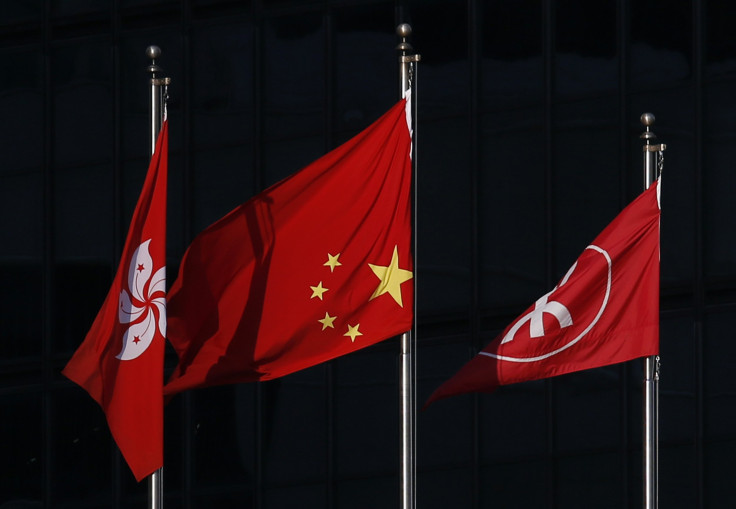Hong Kong Protests: US, Australia Issue Travel Alerts; Beijing Refuses To Rule Out Intervention

The growing unrest in Hong Kong that began as a protest over an extradition bill several weeks ago is beginning to ring alarm bells at a global level. The United States and Australia have issued travel alerts as Hong Kong deals with its worst crisis since 1997 when the former British colony was handed over to Chinese control. It remains a “semi-autonomous” city under China’s “one country, two systems” policy.
Posted Wednesday at the U.S. Consulate General Hong Kong and Macau’s website was the advisory: “The protests and confrontations have spilled over into neighborhoods other than those where the police have permitted marches or rallies. These demonstrations, which can take place with little or no notice, are likely to continue.”
The advisory was raised to a level #2, or yellow, urging travelers to exercise extreme caution. A red level #4 is a Do Not Travel warning for U.S. adversaries like North Korea, Iran and some dangerous African countries.
Since July, Ireland, the UK and Japan have all issued travel warnings to Hong Kong after the initial protests of early June. Australia’s Department of Foreign Affairs and Trade said, “There is a risk of violent confrontation between protesters and police, or criminally linked individuals, particularly at unauthorized protests.”
China has remarkedly stayed on the sidelines showing restraint and continuing its support of Chief Executive Carrie Lam and the Hong Kong Police Force. But there are signs that Beijing’s patience is wearing thin as the crisis inches toward a deployment of the People’s Liberation Army (PLA) to stop the protesters.
Zhang Xiaoming, head of the Hong Kong and Macao Affairs Office, said Hong Kong must “stop the riots and disturbances." He cited former Chinese leader Deng Xiaoping, who formulated the “one country, two systems” policy and added, “If the situation in Hong Kong continues to worsen into unrest that the Hong Kong SAR [Special Administrative Region] government cannot control, the central government will not sit back and do nothing.”
Beijing’s reluctance to deploy the PLA garrison might be that if deployed, it will mark the end of the “One Country, Two Systems” principle that would result in massive changes to both country’s economies, according to Andrew Wan, the vice-chair of the pro-democracy Democratic Party.
Wan accused the Chinese of “falsely labelling” the protests and said that the protests were not a “color revolution” and added, “Instead, Beijing has the characteristics of a totalitarian government to use the law and cook up charges.” He urged that people “not be too pessimistic” about the use of the PLA and said, “I hope the central government remains rational.
© Copyright IBTimes 2024. All rights reserved.





















